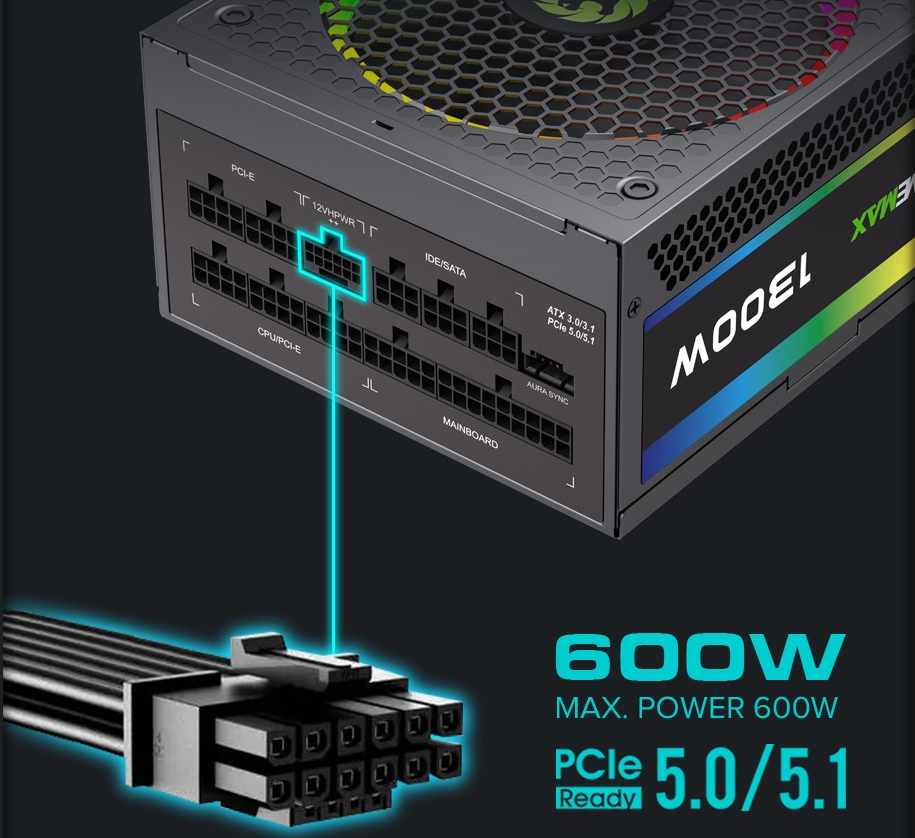When building or upgrading a PC, choosing the right power supply unit (PSU) is crucial. Among the various options available, one of the significant decisions is whether to go for a fully modular or a non-modular power supply. Understanding the differences between these two types can help you make an informed choice that best suits your needs. In this article, we'll dive into the pros and cons of fully modular and non-modular power supplies, their impact on system performance and aesthetics, and how to determine which one is the right fit for your setup.
A fully modular power supply is designed with detachable cables for all connections, including the main 24-pin motherboard cable, CPU power cables, and GPU power cables. This design allows users to connect only the cables they need for their specific build, resulting in a cleaner and more organized interior.

Enhanced Cable Management: One of the most significant advantages of a fully modular PSU is improved cable management. With the ability to connect only the necessary cables, you can minimize cable clutter and enhance airflow within your case. This not only makes your build look neater but also helps in keeping temperatures down by improving air circulation.
Ease of Upgrades: A fully modular PSU allows for easier upgrades and maintenance. If you need to replace or add components, you can disconnect and reconnect only the relevant cables without having to deal with a mess of unnecessary wires.
Customizable Cabling: Fully modular PSUs often come with high-quality cables that can be swapped out for custom sleeved cables. This feature is popular among PC enthusiasts who want to personalize their build and match it with their aesthetic preferences.
Improved Airflow: By reducing cable clutter, fully modular power supplies contribute to better airflow within the PC case. This can lead to improved cooling performance and potentially extend the lifespan of your components.
Cleaner Aesthetics: For those who value aesthetics, a fully modular PSU offers a cleaner and more streamlined look. The absence of unnecessary cables enhances the overall appearance of the build, making it more visually appealing.
Higher Cost: Fully modular power supplies are generally more expensive than their non-modular counterparts. The added cost is due to the complex design and the convenience they offer.
Complexity in Cable Management: While fully modular PSUs provide better cable management, they also require careful planning. You need to ensure you have the right cables for each component, which can be a bit daunting for beginners.
A non-modular power supply, also known as a fixed or semi-modular PSU, comes with all cables permanently attached. This type of PSU does not offer the flexibility of detachable cables but has its own set of advantages.

Lower Cost: Non-modular power supplies are typically less expensive than fully modular models. This cost-saving can be significant, especially for budget-conscious builds.
Simplicity: With all cables pre-attached, non-modular PSUs offer simplicity and ease of use. There’s no need to worry about which cables to connect or disconnect, making them a good choice for those who prefer a straightforward approach.
Reliability: Non-modular PSUs generally have fewer connection points where issues might arise. The fixed cables are often seen as more reliable since they’re less likely to experience connection problems compared to detachable cables.
Cable Clutter: One of the most significant downsides is cable clutter. Non-modular PSUs come with all cables attached, even those that might not be used in your build. This can lead to a messy interior and obstruct airflow, potentially affecting system cooling.
Limited Upgradability: Upgrading or changing components can be more cumbersome with non-modular PSUs. The excess cables can make it difficult to manage and maintain your system.
Reduced Aesthetics: For those who value a clean and organized look, non-modular PSUs may fall short. The extra cables can detract from the visual appeal of your build, especially in cases with transparent panels.
The choice between a fully modular and a non-modular power supply ultimately depends on your priorities and budget. If you value aesthetics, cable management, and the ability to customize your build, a fully modular PSU is likely the better choice. It offers flexibility, a cleaner look, and better airflow.
On the other hand, if you’re on a tight budget and prefer a straightforward setup without the need for extensive cable management, a non-modular power supply might be sufficient. It provides reliable performance at a lower cost, though with some trade-offs in terms of appearance and ease of upgrades.
In summary, both fully modular and non-modular power supplies have their unique benefits and drawbacks. By evaluating your specific needs and preferences, you can select the power supply that best aligns with your goals for your PC build.